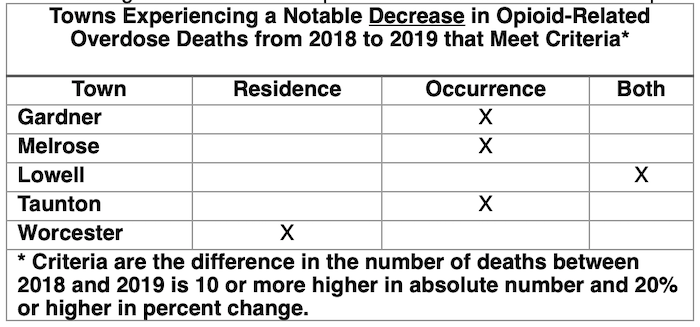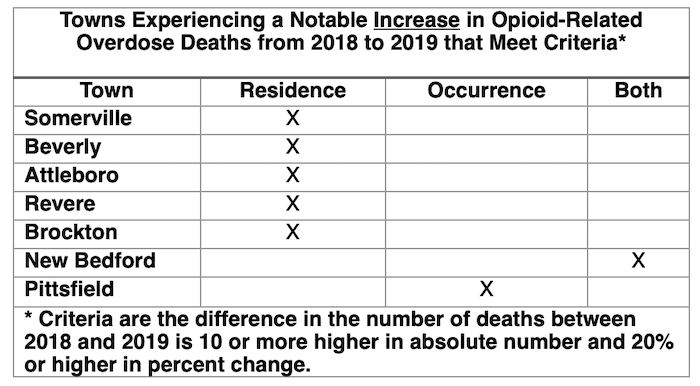United States Senators Elizabeth Warren (D-MA) and Edward J. Markey (D-MA), along with Representatives Richard E. Neal (D-MA-01), James P. McGovern (D-MA-02), Stephen F. Lynch (D-MA-08), William Keating (D-MA-09), Joseph P. Kennedy III (D-MA-04), Katherine Clark (D-MA-05), Seth Moulton (D-MA-06), Ayanna Pressley (D-MA-07) and Lori Trahan (D-MA-04), announced that the U.S. Department of Housing and Urban Development (HUD) has awarded over $71 million in federal grants to support cities and towns across Massachusetts in providing emergency shelter and critical services for individuals and families experiencing homelessness.
The funding, which was awarded through HUD’s Emergency Solutions Grants (ESG) program, will support homeless individuals and individuals at risk of becoming homeless because of hardships such as job loss, wage reduction, or illness due to COVID-19. The funding can be used to make more emergency shelters available, operate emergency shelters, provide hotel/motel vouchers, provide essential services, and prevent individuals from becoming homeless.
This funding, targeted toward communities with high homeless populations or individuals at risk of becoming homeless, was awarded to:
Boston, MA – $23,348,669
Cambridge, MA – $2,268,869
Fall River, MA – $1,275,287
Lawrence, MA – $1,138,406
Lowell, MA – $2,610,376
Lynn, MA – $4,004,861
New Bedford, MA – $1,576,274
Newton, MA – $905,007
Quincy, MA – $1,237,584
Somerville, MA – $632,359
Springfield, MA – $3,951,604
Worcester, MA – $2,715,383
Massachusetts Nonentitlement – $27,939,981
“Housing is a human right and a necessary protection for all Massachusetts residents during this pandemic,” said Senator Warren. “This critical funding will help cities and towns continue to provide essential services and critical supports to ensure individuals experiencing homelessness have access to shelter and safety needs during this devastating pandemic. And I know that much more funding is needed – I will continue to fight for Congress to pass my and Rep. Pressley’s Public Health Emergency Shelter Act to provide the additional $11.5 billion in ESG funds that advocates say is necessary.”
“Protecting those who are most vulnerable, those struggling with homelessness and exposure, is key to combatting the spread of the coronavirus,” said Senator Markey. “This federal funding means we can provide and expand the shelter, health care, treatment, employment assistance, and critical support that will ensure we combat homelessness as we battle this virus.”
“Thanks to HUD’s Emergency Solutions Grant cities and towns across Massachusetts, including Springfield, will be able to provide services for the vulnerable homeless population,” said Congressman Neal. “These individuals who have suffered hardship due to COVID-19 will be aided through programs that provide shelter and essential services. We must continue to assist these communities.”
“These Emergency Solutions Grants will help Massachusetts protect our most vulnerable families, and I’m glad to see this Congressionally-appropriated money flowing into communities like Worcester,” said Congressman McGovern. “But our work is far from over. We can’t go back to normal after this pandemic runs its course. Normal was working families at risk of homelessness and struggling to get by. Normal was people relying on emergency shelters because they couldn’t make ends meet. As the coronavirus continues to magnify the injustices and inequalities in our country, I want us to do better than normal. We must keep fighting for the types of big changes that will prevent a catastrophe like this from happening again.”
“These HUD Emergency Solution Grants are essential to protect those families that are most exposed,” said Congressman Lynch. “Poverty and homelessness are predictors of vulnerability to the COVID-19 pandemic and these funds will make more emergency shelters, childcare, substance abuse treatment and employment assistance available to vulnerable populations.”
“These Emergency Solution Grants from the CARES Act are vital to the South Coast,” said Congressman Bill Keating. “As we continue to battle COVID-19, we need to realize that this is not just a health crisis, but a financial one too for so many families. The additional resources New Bedford and Fall River will receive will ensure none of our neighbors will go hungry, find themselves homeless, or lack the support systems they need during this challenging time.”
“In the wealthiest nation on earth, none of our neighbors should go hungry or homeless, not now, and not ever,” said Congressman Kennedy. “As we celebrate these critical funds supporting our communities, we must do more as so many in our Commonwealth continue to lose food security and shelter.”
“Coronavirus started as a public health crisis but it quickly became a financial one, destabilizing families and threatening their ability to pay rent and purchase other basic necessities. Meanwhile, we know access to safe shelter is a fundamental protection against this virus,” said Congresswoman Clark. “These federal resources provided through the CARES Act will help ensure Massachusetts residents have a safe place to turn and the support services needed to keep them stable and healthy while we weather this storm.”
“The coronavirus has taken a heavy toll on people’s health and on their bank accounts. In the richest country on earth, nobody should be forced out of their home because they lost a job or got sick, especially during a pandemic,” said Congressman Moulton. “People are doing their best to tread water, but communities need federal help. These funds are a start, but we’ll need more federal action to get through this.”
“Housing is a critical determinant of public health, a fact that has only been underscored by the COVID-19 pandemic,” said Congresswoman Pressley. “We have a moral obligation to protect the health and safety of all people, particularly our most vulnerable, and that includes ensuring our neighbors facing homelessness and the workers who support them have the resources they need to remain safe and healthy amid this crisis. I’m proud to have fought to ensure that these Emergency Solutions Grants were included in the most recent CARES legislation so that local providers in the Massachusetts 7th and across the country have the flexibility and support they need to be responsive to the needs of their communities by providing funding for training, protective equipment, rapid rehousing efforts, and more.”
“As some states experience new surges in COVID-19 cases and hospitalizations, it’s important that communities like Lowell and Lawrence have the resources they need to provide services to their most vulnerable residents. I’m proud to announce this tranche of CARES Act funding, which will help governments keep those experiencing homelessness safe as we continue combating the spread of the coronavirus,” said Congresswoman Trahan.
Since the onset of the COVID-19 pandemic, Senator Warren has worked to ensure individuals and families can obtain and keep the housing they need to stay healthy. She introduced the Public Health Emergency Shelter Act to provide an additional $11.5 billion for the Emergency Solutions Grant program to help provide emergency shelter and services for families experiencing homelessness during the pandemic, and co-sponsored the Emergency Rental Assistance and Rental Market Stabilization Act to provide relief to renters. Senator Warren recently convened conversations with advocates for affordable housing and homelessness prevention to discuss the federal government’s response to the COVID-19 pandemic and its impact on vulnerable communities in Massachusetts.
This is the second round of CARES Act funding through HUD’s ESG program. In April, Senators Warren and Markey announced over $25 million awarded to Massachusetts cities and towns through funding under the ESG program. More information about HUD’s COVID-19 relief funding is available here.

